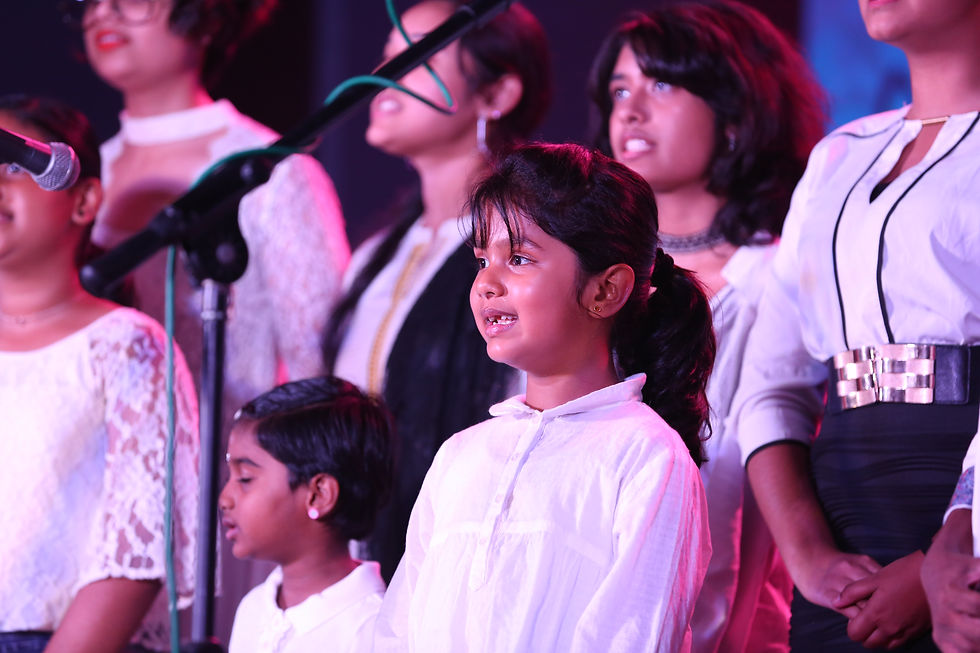LEARNING WESTERN CLASSICAL MUSIC IN CHENNAI
- academyakira
- May 29, 2021
- 3 min read
LEARNING WESTERN CLASSICAL MUSIC IN CHENNAI
Chennai has got excellent musicians with great skills of Performing, Sight reading, Theoretical and Technical knowledge. Music is being taught in Churches and Schools before and after Independence. It became part of christian culture to sing and play instruments during the Sunday mass and other religious occasions where they believe in the service to the god through music. Most western musicians from Chennai come from christianity background. Apart from teaching in church teachers also taught in their home and schools so there was no denial for learning music for a non christian.
Even after independence people didn't lend ears for western classical music because it was considered as Englishman’s Music and Madras has its strong hold of its own Carnatic Music. Slowly many Music teachers like Handel Manuel and Dhanraj master spread the western classical music essence through their students. That is how Illayaraaja is so good in western classical genre as he was the student of Late Dhanraj Master. Slowly music institutions started flourishing in Chennai like Musee musicals itself started music institutions in 1966.

Worldwide western classical music training generally happens once a week one to one class, where each class lasts for 45 minutes to 1 hour. Group classes are also popular in Chennai teaching 5-10 students in a batch teaching twice to thrice a week. Unlike Carnatic music, learning western classical music is open to all the caste still the fee structure is not affordable for lower middle class.
Music EXAMS AND CERTIFICATION

Most teachers in India train the students only to appear and pass examinations like Trinity, ABRSM and LCM (Association boards of London Based Universities). All these Boards have 8 Grades and 3 diplomas. In all 8 grades Students need to Choose 3 pieces out of 9 pieces from the book, technical exercises consisting Scales and arpeggios, Sight reading and Aural skills are also tested. As the teachers focused mainly on training to appear for the exams they are not taught anything outside the syllabus. This is also convenient for the Parents/students who want to see the immediate results and certifications.
Trinity and ABRSM serve only in cities. London College of Music supp
orts rural teachers also. Earlier, Trinity, ABRSM supported pure western classical instruments like violin, Piano, Guitar. But later Trinity Introduced electronic keyboards where manufacturers like Yamaha, Casio manufactured boards according to the exams which are cheaper than Piano. Many students started using electronic keyboards instead of Piano. Whereas ABRSM still strictly follows Western Classical Music.
But, in reality the student needs to buy an upgraded electronic keyboard after passing every level which essentially equals buying an electronic Piano. Few Teachers teach Piano lessons in Keyboard in the initial stage and later make them buy Piano. Trinity introduced this method from a pure business perspective.
Though Trinity introduced electronic keyboard and Plectrum Guitar Syllabus, it didn't solve its purpose of learning modern instruments because the syllabus is focused on traditional english songs rather than popular/ rock music. Later Trinity and Rock school of Music brought Rock and POP Exams(modern, electronic instruments) which focus on Rock a
nd POP songs. Here again the students learn modern songs & techniques but they don't get exposed to classical songs and again the syllabus is not balanced hence the musicality and musicianship is not instilled.
AWARENESS AND EXPOSURE
Most students are not aware of the current scenario
of the instrument that they play like who is popular now and was before, the pieces outside their syllabus, about the composers or even about the pieces which they have learned and the resources available. This reminds the “frogs in the well” who know to play only what they have learnt. So the blind memorising tradition has been widely followed.
Exposure is minimal in Chennai. The only exposure for students is performing in front of the examiner. Students should get opportunities to perform more, Only When students get to perform for an audience they would start thinking out of the box. We need to increase music workshops for students and teachers so the technical skills improve. Although small workshops are happening in Chennai still it doesn’t serve the overall learning or teaching aspect of Western Classical musical education.
MMA which was doing Choir. Now, it is doing Orchestration chamber and Conducting bi- monthly concerts which gives good exposure but more such organisations should come forward to bring out the music from the musicians which will eventually take us to the global standards.







Comments